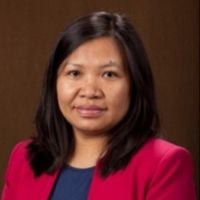Integration of Content and Language/Literacy Learning for Multilingual Students
A special issue of Education Sciences (ISSN 2227-7102).
Deadline for manuscript submissions: 30 April 2024 | Viewed by 310
Special Issue Editors
Interests: language-rich and asset-oriented pedagogies in disciplinary instruction; teacher professional development for integration of content and language/literacy
Interests: multilingual students’ academic language and literacy development; content-integrated literacy instruction/intervention; (quasi-) experimental research design
Special Issue Information
Dear Colleagues,
The integration of content and language/literacy learning in educational environments has recently gained increasing attention in educational research and teaching communities. There is growing evidence to suggest that integrating content and language/literacy in classrooms can foster content knowledge and disciplinary practices, enhance reading comprehension and conceptual understanding, and promote the ability to apply higher-order language processes and critical thinking skills across various contexts. Educational standards like the Common Core State Standards in the U.S. also underline the significance of disciplinary language literacy instruction and development within content subjects, extending beyond just language arts classes.
The integration of content and language/literacy becomes even more essential for multilingual students, who typically learn new language and literacy skills while simultaneously grasping challenging content knowledge in schools. Content area teachers often grapple with the demands of supporting multilingual students’ second language and literacy skills during content teaching. Content and language/literacy integration approaches can make second language, literacy, and disciplinary learning opportunities more relevant, accessible, and equitable for multilingual students. However, less is understood regarding what an effective, systematic integration of content and language/literacy looks like in content area or ESL/dual language classrooms for multilingual students, and how teachers navigate through possible tensions in content area and language/literacy instruction to meet the needs of multilingual students.
The focus of this Special Issue is to gain a deeper understanding of cross-domain (from content areas to language/literacy) learning opportunities for multilingual students, ranging from early childhood to late adolescent periods. Such knowledge is vital to enhance the content learning and language/literacy development of multilingual students. Topics of empirical papers in this Special Issue include, but are not limited to, the development of subject-specific literacy (e.g., disciplinary literacy, domain-specific vocabulary, or reading comprehension) in multilingual students; language-rich practices in content area classrooms; the incorporation of bilingual/multilingual pedagogies (e.g., cognitive- and psycholinguistic-oriented second language acquisition [SLA] pedagogies, and equity-focused pedagogies such as translanguaging, funds of knowledge, and culturally sustaining pedagogies) in content area classrooms; and content-infused instruction in language and/or literacy learning settings (e.g., dual-language/bilingual program, and ESL program). We welcome empirical studies conducted in diverse school, home, community, and/or cultural settings across a range of disciplines (e.g., educational psychology, developmental psychology, learning sciences and cognition, STEM education, bilingual/ESL education, and instructional sciences and implementation research).
Proposed Submissions:We invite the submission of proposals up to 500 words in length by 15 January 2024 to guest co-editors jzhang64@uh.edu and jrelyea@ncsu.edu with “Education Sciences Special Issue” in the subject line. Proposals will be reviewed and accepted proposals will be invited to submit a full manuscript for peer review. Please note that an invitation to submit a full paper does not guarantee acceptance; all papers will be subject to the full peer review process as per any submission to Education Sciences. A full manuscript should be between 4,000 and 8,000 words in length, including the abstract and tables/figures.
Dr. Jie Zhang
Dr. Jackie Eunjung Relyea
Guest Editors
Manuscript Submission Information
Manuscripts should be submitted online at www.mdpi.com by registering and logging in to this website. Once you are registered, click here to go to the submission form. Manuscripts can be submitted until the deadline. All submissions that pass pre-check are peer-reviewed. Accepted papers will be published continuously in the journal (as soon as accepted) and will be listed together on the special issue website. Research articles, review articles as well as short communications are invited. For planned papers, a title and short abstract (about 100 words) can be sent to the Editorial Office for announcement on this website.
Submitted manuscripts should not have been published previously, nor be under consideration for publication elsewhere (except conference proceedings papers). All manuscripts are thoroughly refereed through a double-blind peer-review process. A guide for authors and other relevant information for submission of manuscripts is available on the Instructions for Authors page. Education Sciences is an international peer-reviewed open access monthly journal published by MDPI.
Please visit the Instructions for Authors page before submitting a manuscript. The Article Processing Charge (APC) for publication in this open access journal is 1800 CHF (Swiss Francs). Submitted papers should be well formatted and use good English. Authors may use MDPI's English editing service prior to publication or during author revisions.
Keywords
- content and language/literacy integration
- multilingual students
- content area literacy
- equity-focused pedagogies
- language-rich practices
- content area classrooms






